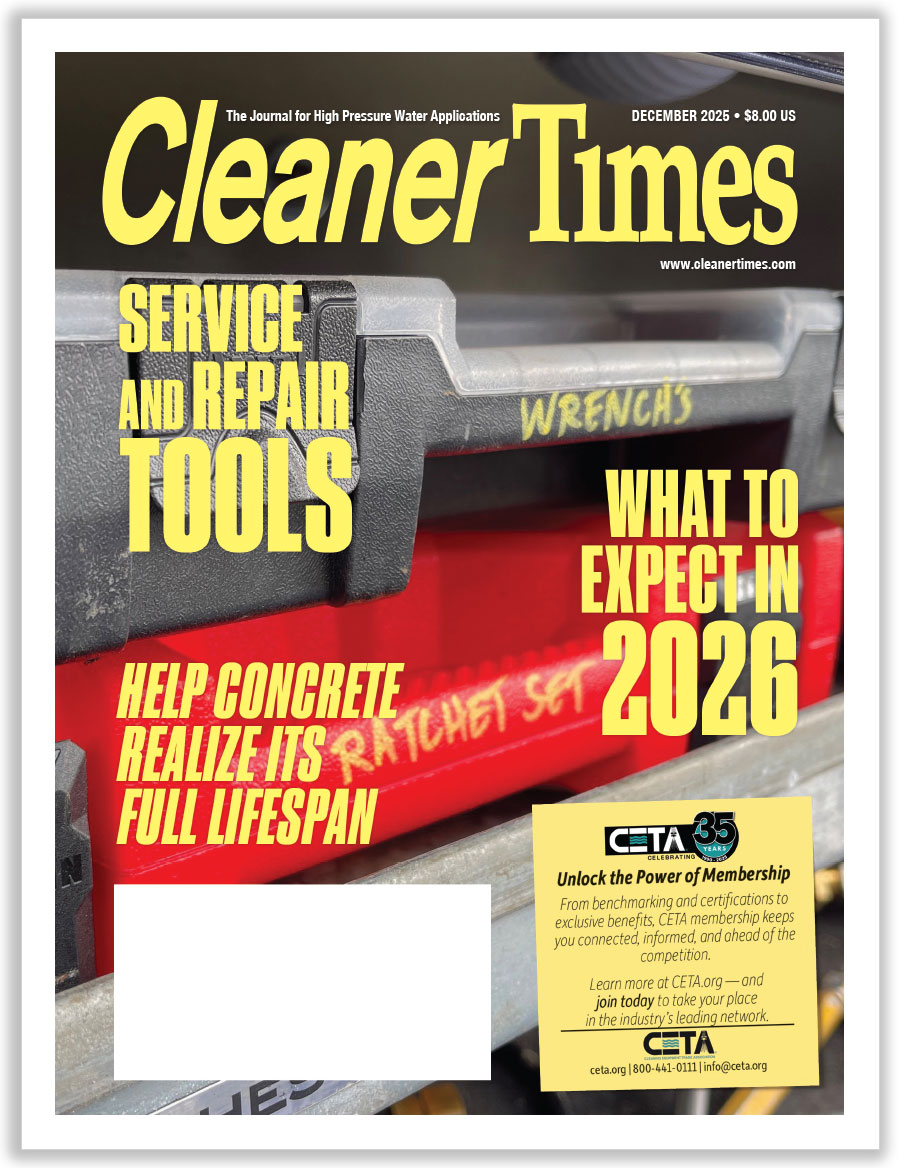
Legislative Update
By Diane M. Calabrese / Published December 2015

Stay informed. Provide comment. Comply. Educate. Therein are the four supports for building a business that meets any and all regulations.
Although regulations begin with legislative action at the federal, state, or local level, administrative government entities have a great deal of latitude in writing the rules that citizens must follow. The Environmental Pro-tection Agency (EPA), for example, has made the fullest use of its authority when crafting rules.
Serious effort to comply with regulations begins with knowing what they are. To stay informed, manufacturers, distributors, and contractors receive alerts directly from administrative bodies, turn to their professional organizations for guidance and alerts, and talk to colleagues in the industry.
It’s essential to be “members of trade associations and Internet discussion groups” to keep pace with legislation, says Robert M. Hinderliter, an environmental specialist and president of Rahsco Mfg. Co., Inc. in Burleson, TX. Rules change quickly.
A legislative action that occurred in California in 2015 serves as a good example. Under the mandatory water-use restrictions (aimed at easing the results of a prolonged dry period), the phrase ‘health and safety’ was changed to ‘immediate health and safety’ as it applies to an exemption for use of water by powerwashing contractors, explains Hinderliter. “This term is being picked up by other jurisdictions across the country.”
The manner in which water-use restrictions and reductions were put into effect in the Golden State is instructive. The governor of California began issuing executive orders in January 2014. Acting with the authority provided by the executive orders, the State Water Resources Control Board began to issue regulations directing urban water suppliers (and their customers) to reduce water use (including water waste).
Among the prohibitions issued by the control board are those against using a pressure washer to clean a sidewalk or driveway for aesthetic purposes. A health and safety exemption might be granted for removing bird droppings that might contribute to disease. Yet with the more stringent criterion of ‘immediate’ in terms of health and safety, some jurisdictions might not allow the washing unless there were something as unhealthy as a pool of human blood.
Like so many regulations, exemptions are not always understandable within the realm of strict logic. For instance, the water-use restrictions in California do not apply to federal or tribally-owned water suppliers.
[Exemptions, which cause much confusion, are in no way unique to California. In a tangential area—pesticide use—Montgomery County, MD (where this writer is based) became the first municipality in the nation (in October 2015) to ban cosmetic pesticides on private lawns, certain county land, childcare facilities, and playgrounds. Many residents wonder why pesticides and herbicides, such as Dicamba 2,4-D and glyphosate, pose less of a risk to health on golf courses (where they will still be permitted) or on exempted county land.]
Combatting Confusion
Much of the task of staying informed involves combatting confusion, which unfortunately manifests itself just about everywhere a regulation is in play. Consider the very classification of a pressure washer, a topic that has not yet been settled.
“The biggest issue we face today is the never-ending problem of industry confusion,” says Dr. Marlo Dean, senior support services manager at Kärcher North America in Camas, WA. “Inspectors still classify pressure washers as boilers.”
Pressure washers are not boilers. And it’s a point that Dean has worked tirelessly to get established with regulators. “Pressure washers do not generate steam in a closed vessel,” explains Dean. “Pressure washers are designed to operate differently than boilers and have different safety controls.”
The basics that Dean cites are those that he and other industry representatives share with regulators whenever relevant legislation is pending and a comment period is open. Feedback to regulators can be made at any time, to be sure, but participation in comment periods is a must because salient comment provided may contribute to a final rule that combines the best of environmental friendliness and business friendliness.
Comments provided by industry groups are usually weighted much more heavily than those provided by individuals. And the Cleaning Equip-ment Trade Association (CETA) has worked actively with other industry groups to arrive at a uniform understanding of what a pressure washer is—to continue with just the pressure washer definition example.
“We have our own industry association [CETA] and safety standards IEC 60335-2-79, UL 1776, and CSA B140,” says Dean. “We do not design or sell boilers, but inspectors fail to understand the differences between the two industries.”
Recently, says Dean, the Kansas Boiler Safety Act added a section on pressure washers [power washers in the act]. Boilers must be approved in accordance with the ASME [American Society of Mechanical Engineers] boiler and pressure washer code. As a result, if a pressure washer is labeled a boiler, problems ensue.
Dean explains that he is aware of other state jurisdictions beyond the Sunflower State that are red tagging pressure washers because they have not been approved by ASME. So much so, that some pressure washer manufacturers have asked how they get a boiler permit for a pressure washer.
Like Hinderliter, Dean says it is an absolute part of doing business for members of the industry to be participants in professional organizations that use their group expertise to communicate with regulators to the best interest of all. “CETA is an association that attempts to keep its members aware of [regulatory] issues,” says Dean.
“Each year CETA holds a manufacturing summit to discuss industry issues and how as an industry we can resolve these issues,” says Dean. “This is how the UL 1776 safety standard for pressure washers was started and how we dealt with [environmental regulations from EPA] in California.”
On the environmental side of compliance, associations also represent contractors. The United Association of Mobile Contract Cleaners (UAMCC) has a committee on environmental awareness that meets often by phone. Members of the Power Washers of North America (PWNA), such as Hinderliter, have long been working to develop and disseminate best management practices (BMPs).
[Note: For readers who missed the interview with Dean in the May 2015 issue of this magazine, now is the time to read it for a succinct recap of the many voluntary and mandatory regulatory issues, including harmonization, confronting the industry. See “Recent Trends Part I—Legislative and Regulatory Updates” at www.cleanertimes.com/pdfdocs/Recent%20Trends.pdf.]
Comply and Educate
Manufacturers, distributors, and contractors are united in their commitment to complying with regulations. Even as they work to get regulations clarified or modified, they deal with what is.
For some contractors, the water restrictions in California have been devastating. And James D. Gamble, the CEO of Crystal Cleaning Co., LLC in Antioch, CA, tells us that many power washing contractors have gone out of business. An advocate for the environment who has worked on environmental issue-oriented committees and been a PWNA board member, he reminds us how important it is to provide not only written comment but public comment when the opportunity arises.
Not only did Gamble take the opportunity to comment on the proposal to stop all cleaning with pressure washers at a meeting in California in 2014, but he also got coverage of his comment by a local news station. He had two goals, he explains.
One goal was to ensure that use of pressure washers for cleaning connected to health and safety could continue. The other was to increase public awareness of the powerwashing industry and showcase the industry in a positive way.
Gamble would like to see more contractors take the same approach to open meetings. Educating not only regulators, but also the citizenry, about the good outcomes of clean surfaces —and how they can be achieved with a minimum amount of water, is part of doing business.
The health and safety tie-in to deployment of pressure washers should be more universally cited, says Gamble. It is for a health and safety reason that most facilities require cleaning. “It is the ‘why’ a facility will most likely consider a pressure washing contract in the first place,” he explains.
Education cannot be overstated. Many residents of California still do not understand what constitutes a violation of water restrictions. One online discussion among some residents in Santa Barbara leans heavily toward the sentiment that even when water can be used for cleaning, it should not be used. In this context, it’s particularly important for contractors to get the word out regarding the wastewater recapture and recycling efforts they have incorporated on their jobs.
Among the regulations that confront contractors each day are soft ones, such as an alert on poor air quality. When such alerts are issued, the public is asked to help reduce ozone in part by avoiding the use of small gasoline-powered engines including those on pressure washers. Voluntary compliance on ozone-alert days will be a must for many contractors. Reminding prospective customers that environmental regulations are taken seriously—even when voluntary compliance is the only request, can be a good marketing tool in the long run. Be bold in educating customers about how seriously regulations are taken.




